- Home
- Ian Fleming
Thrilling Cities Page 2
Thrilling Cities Read online
Page 2
The bill seeks to amend the relevant sections of the Indian Penal Code, and provides for imprisonment extending up to 10 years and fine in the case of kidnapping or obtaining custody of minors for employing them for begging, and life imprisonment and fine in the case of maiming. – P.T.I.
Back on the plane, the assistant stewardess wore the Siamese equivalent of a cheong sam. Five hours away was Bangkok. One rejected sleep and breakfast for the splendour below and away to port where the Himalayas shone proudly and the tooth of Everest looked small and easy to climb. Why had no one ever told me that the mouths of the Ganges are one of the wonders of the world? Gigantic brown meanderings between walls and islands of olive green, each one of a hundred tributaries seeming ten times the size of the Thames. A short neck of the Bay of Bengal and then down over the rice fields of Burma to the heavenly green pastures of Thailand, spread out among wandering rivers and arrow-straight canals like some enchanted garden. This was the first place of really startling beauty I had so far seen and the temperature of ninety-two degrees in the shade on the tarmac did nothing to spoil the impact of the country where I would advise other travellers to have their first view of the true Orient. The minute air hostess, smiling the first true smile, as opposed to an air-hostess smile, since London, told us to ‘forrow me’.
In spite of the mosquitoes as large as Messerschmitts and the wringing humidity, everyone seems to agree that Bangkok is a dream city, and I blamed myself for hurrying on to Hong Kong. In only one hour, one still got the impression of the topsy-turvy, childlike quality of the country and an old Siamese hand, a chance acquaintance, summed it up with a recent cutting from a Bangkok newspaper. This was a plaintive article by a high police official remonstrating with tourists for accosting girls in the streets. These street-walkers were unworthy representatives of Siamese womanhood. A tourist had only to call at the nearest police station to be given names and addresses and prices of not only the most beautiful, but the most respectable, girls in the city.
Back in the Comet that, after six thousand miles, seemed as fresh and trim as it had at London Airport, it was half an hour across the China Sea before one’s clothes came unstuck from one’s body. Then it was only another hour or so before the Chinese communist-owned outer islands of Hong Kong showed up below and we began to drift down to that last little strip of tarmac set in one of the most beautiful views in the world. It was nearly five o’clock and just over twenty-six hours and seven thousand miles from London. Twenty minutes late! Take a letter please, Miss Trueblood.
*
‘Is more better now, Master?’ I grunted luxuriously and the velvet hands withdrew from my shoulders. More Tiger Balm was applied to the finger tips and then the hands were back, now to massage the base of my neck with soft authority. Through the open french windows the song of bulbuls came from the big orchid tree covered with deep pink blossom and two Chinese magpies chattered in the grove of casuarina. Somewhere far away turtle doves were saying ‘coocoroo’. Number One Boy (Number One from among seven in the house) came in to say that breakfast was ready on the veranda. I exchanged compliments with the dimpling masseuse, put on a shirt and trousers and sandals and walked out into the spectacular, sun-drenched view.
As, half-way through the delicious scrambled eggs and bacon, a confiding butterfly, black and cream and dark blue, settled on my wrist, I reflected that heaven could wait. Here, on the green and scarcely inhabited slopes of Shek-O, above Big Wave Bay on the south-east corner of Hong Kong island, was good enough.
This was my first morning in Hong Kong and this small paradise was the house of friends, Mr and Mrs Hugh Barton. Hugh Barton is perhaps the most powerful surviving English taipan (big shot) in the Orient, and he lives in discreet accordance with his status as Chairman of Messrs Jardine Matheson, the great Far Eastern trading corporation founded by two energetic Scotsmen one hundred and forty years ago. They say in Hong Kong that power resides in the Jockey Club, Jardine Mathesons, the Hong Kong and Shanghai Bank, and Her Majesty’s Government – in that order. Hugh Barton, being a steward of the Jockey Club, Chairman of Jardine’s, Deputy Chairman of the Hong Kong and Shanghai Bank and a member of the Governor’s Legislative Council, has it every way, and when I complained of a mildly stiff neck after my flight it was natural that so powerful a taipan’s household should conjure up a comely masseuse before breakfast. That is the right way, but alas how rare, for powerful taipans to operate. When, the night before, I had complimented Mrs Barton for having fixed a supremely theatrical new moon for my arrival, I was not being all that fanciful.
Apart from being the last stronghold of feudal luxury in the world, Hong Kong is the most vivid and exciting city I have ever seen, and I recommend it without reserve to anyone who possesses the fate. It seems to have everything – modern comfort in a theatrically Oriental setting; an equable climate except during the monsoons; beautiful country for walking or riding; all sports, including the finest golf course – the Royal Hong Kong – in the East, the most expensively equipped racecourse, and wonderful skin-diving; exciting flora and fauna, including the celebrated butterflies of Hong Kong; and a cost of living that compares favourably with any other tourist city. Minor attractions include really good Western and Chinese restaurants, exotic night life, cigarettes at 1s. 3d. for twenty, and heavy Shantung silk suits, shirts, etc., expertly tailored in forty-eight hours.
With these and innumerable other advantages it is, therefore, not surprising that the population of this minute territory is over three million, or one million more than the whole of New Zealand. The fact that six hundred and fifty million communist Chinese are a few miles away across the frontier seems only to add zest to the excitement at all levels of life in the colony and, from the Governor down, if there is an underlying tension, there is certainly no dismay. Obviously China could take Hong Kong by a snap of its giant fingers, but China has shown no signs of wishing to do so, and when the remaining forty years of our lease of the mainland territory expire, I see no reason why a reduced population should not retreat to the islands and the original territory which we hold in perpetuity.
Whatever the future holds, there is no sign that a sinister, doom-fraught count-down is in progress. It is true that the colony every now and then gets the shivers, but when an American bank pulled up stumps during the Quemoy troubles in 1958, there was nothing but mockery. The government pressed on inside the leased territory with the building of the largest hospital in the Orient and with the erection of an average of two schools a month to meet the influx of refugees from China. The private Chinese and European builders also pressed on, and continue to press on today, with the construction of twenty-storey apartment houses for the lower and middle classes. Altogether it is a gay and splendid colony humming with vitality and progress, and pure joy to the senses and spirits.
Apart from my host, my guide, philosopher and friend in Hong Kong, and later in Japan, was ‘Our Man in the Orient’, Richard Hughes, Far Eastern correspondent of the Sunday Times. He is a giant Australian with a European mind and a quixotic view of the world exemplified by his founding of the Baritsu branch of the Baker Street Irregulars – Baritsu is Japanese for the national code of self-defence which includes judo, and is the only Japanese word known to have been used by Sherlock Holmes.
On my first evening he and I went out on the town.
The streets of Hong Kong are the most enchanting night streets I have trod. Here the advertising agencies are ignorant of the drab fact, known all too well in London and New York, that patterns of black and red and yellow have the most compelling impact on the human eye. Avoiding harsh primary colours, the streets of Hong Kong are evidence that neon lighting need not be hideous, and the crowded Chinese ideograms in pale violet and pink and green with a plentiful use of white are entrancing not only for their colours but also because one does not know what drab messages and exhortations they spell out. The smell of the streets is seaclean with an occasional exciting dash of sandalwood from a joss-stick fact
ory, frying onions, and the scent of sweet perspiration that underlies Chinese cooking. The girls, thanks to the cheong sams they wear, have a deft and coltish prettiness which sends Western women into paroxysms of envy. The high, rather stiff collar of the cheong sam gives authority and poise to the head and shoulders, and the flirtatious slits from the hem of the dress upwards, as high as the beauty of the leg will allow, demonstrate that the sex appeal of the inside of a woman’s knee has apparently never occurred to Dior or Balmain. No doubt there are fat or dumpy Chinese women in Hong Kong, but I never saw one. Even the men, in their spotless white shirts and dark trousers, seem to have better, fitter figures than we in the West, and the children are a constant enchantment.
We started off our evening at the solidest bar in Hong Kong – the sort of place that Hemingway liked to write about, lined with ships’ badges and other trophies, with, over the bar, a stuffed alligator with an iguana riding on its back. The bar belongs to Jack Conder, a former Shanghai municipal policeman and reputed to have been the best pistol shot there in the old days. His huge fists seem to hold the memory of many a recalcitrant chin. He will not allow women in the bar downstairs on the grounds that real men should be allowed to drink alone. When the Japanese came in 1941, Conder stayed on in Shanghai, was captured and escaped. He took the long walk all the way down China to Chungking, sleeping during daylight hours in graveyards, where the ghosts effectively protected him. He is the authentic Hemingway type and he sells solid drinks at reasonable prices. His bar is the meeting place of ‘Alcoholics Synonymous’ – a group of lesser Hemingway characters, most of them local press correspondents. The initiation ceremony requires the consumption of sixteen San Migs, which is the pro name for the local San Miguel beer – to my taste a very unencouraging brew.
After fortification with Western poisons (I gather that no self-respecting Chinese would think of drinking before dinner, but that the fashion for whisky is invading the Orient almost as fast as it has invaded France) we proceeded to one of the finest Chinese locales, the Peking Restaurant. Dick Hughes, a hard-bitten Orientalogue, was determined that I should become Easternized as soon as possible and he missed no opportunity to achieve the conversion. The Peking Restaurant was bright and clean. We consumed seriatim:
shark’s fin soup with crab,
shrimp balls in oil,
bamboo shoots with seaweed,
chicken and walnuts,
with, as a main dish,
roast Peking duckling,
washed down with mulled wine. Lotus seeds in syrup added a final gracious touch.
Dick insisted that then, and on all future occasions when we were together, I should eat with chopsticks, and I pecked around with these graceful but ridiculous instruments with clumsy enthusiasm. To my surprise the meal, most elegantly presented and served, was in every respect delicious. All the tastes were new and elusive, but I was particularly struck with another aspect of Oriental cuisine – each dish had a quality of gaiety about it, assisted by discreet ornamentation, so that the basically unattractive process of shovelling food into one’s mouth achieved, whether one liked it or not, a kind of elegance. And the background to this, and to all my subsequent meals in the East, always had this quality of gaiety – people chattering happily and smiling with pleasure and encouragement. From now on, all the meals I ate in authentic, as opposed to tourist, Chinese or Japanese restaurants were infinitely removed from what, for a lifetime, had been a dull, rather unattractive routine in the sombre eating-mills of the West, where the customer, his neighbours and the waiters seem subtly to resent each other, the fact that they should all be there together, and very often the things they are eating.
Dick Hughes spiced our banquet with the underground and underworld gossip of the colony – the inability of the government to deal drastically with Hong Kong’s only real problem, the water shortage. Why didn’t they hand it over to private enterprise? The gas and electricity services were splendidly run by the Kadoorie brothers, whose record had been equally honourable in Shanghai. There was a grave shortage of hotels. Why didn’t Jardines do something about it? Japanese mistresses were preferable to Chinese girls. If, for one reason or another, you fell out with your Japanese girl, she would be dignified, philosophical. But the Chinese girl would throw endless hysterical scenes, and probably turn up at your office and complain to your employer. Servants? They were plentiful and wonderful, but too many of the English and American wives had no idea how to treat good servants. They would clap their hands and shout ‘Boy!’ to cover their lack of self-confidence. This sort of behaviour was out of fashion and brought the Westerner into disrepute. (How often one has heard the same thing said of English wives in other ‘coloured’ countries!)
The latest public scandal was the massage parlours and the blue cinemas (with colour and sound!) that flourished, particularly across the harbour in Kowloon. The Hong Kong Standard had been trying to clean them up. The details they had published had anyway been good for circulation. He read out from the Standard: ‘Erotic dailies circulate freely here. Blue films shown openly. Hong Kong police round up massage girls.’ The Standard had given the names and addresses: ‘Miss Ten Thousand Fun and Safety at 23 Stanley Street, 2nd floor. Business starting at 9 a.m. … Miss Soft and Warm Village … Miss Outer Space, and Miss Lotus of Love at 17 Cafe Apartments, Room 113, ground floor. (Opposite the French Hospital. Room heated) … Miss Chaste and Refined, Flat A, Percival Mansion, 6th floor (lift service).’ And more wonderful names: ‘Miss Smooth and Fragrant … Miss Emerald Parsley … Miss Peach Stream Pool (satisfaction guaranteed),’ and so forth.
The trouble, explained Dick, was partly the traditional desire of Oriental womanhood to please, combined with unemployment and the rising cost of living. Increase in the number of light industries, particularly the textile mills, the bane of Lancashire and America, might help. Would I like to visit the latest textile mill? I said I wouldn’t.
It was a natural step from this conversation to proceed from the Peking Restaurant to the world of Suzie Wong.
Richard Mason, with his splendid book The World of Suzie Wong, has done for a modest waterfront hotel what Hemingway did for his very different Harry’s Bar in Venice. The book, though, like A Many-Splendoured Thing by Han Suyin, read universally by the literate in Hong Kong, is small-mindedly frowned upon, largely I gather because miscegenation with beautiful Chinese girls is understandably an unpopular topic with the great union of British womanhood. But the Suzie Wong myth is in Hong Kong to stay, and Richard Mason would be amused to find how it has gathered depth and detail.
It seems to be fact, for instance, and perhaps the only known fact, that when he was in Hong Kong Richard Mason did live in a waterfront establishment called the Luk Kwok Hotel, transformed in his book into the Nam Kok House of Pleasure, where the painter, Robert Lomax, befriended and, after comic, tender, romantic and finally tragic interludes, married the charming prostitute Suzie Wong.
As a result of the book, the Luk Kwok Hotel, so conveniently placed near the Fleet landing stage and the British Sailors’ Home, has boomed. Solitary girls may still not sit unaccompained in the spacious bar with its great and many-splendoured juke-box. You must still bring them in from outside, as did Lomax, to prevent the hotel becoming, legally, a disorderly house. But the whole place has been redecorated in deep battleship grey (to remind the sailors of home?) and one of Messrs Collins’s posters advertising Richard Mason’s book has a place of honour on the main wall. Other signs of prosperity are a huge and hideous near-Braque on another wall, a smart Anglepoise light over the cash register, and a large bowl of Siamese fighting fish. (It is also a sign of fame, of which the proprietor is very proud, that the totally respectable Prime Minister of Laos and his Foreign Minister stayed at the Luk Kwok on a visit to Hong Kong.) If you inquire after Suzie herself, you are answered with a melancholy shake of the head and the sad, dramatic news that Suzie’s marriage failed and she is now back ‘on the pipe’. When you ask where you could
find her, it is explained that she will see no other man and waits for Lomax one day to return. She is not in too bad a way, as Lomax sends her regular remittances from London. But there are many other beautiful girls here just as beautiful as Suzie. Would you care to meet one, a very particular friend of Suzie’s?
I don’t know how much the sailors believe this story, but I suspect they are all quite happy to put up with ‘Suzie’s friend’, and I for one greatly enjoyed exploring the myth that will forever inhabit the Luk Kwok Hotel with its neon slogans: ‘GIRLS, BUT NO OBLIGATION TO BUY DRINKS! CLEAN SURROUNDINGS! ENJOY TO THE MAXIMUM AT THE LEAST EXPENSE!’
Dick Hughes misunderstood one author’s delighted interest in the brilliance of another author’s myth, and protested that there were far better establishments awaiting my patronage. But by now it was late and the after-effects of jet travel – a dull headache and a bronchial breathlessness – had caught up with me, and we ended our evening with a walk along the thronged quays in search of a taxi and home.
On the way I commented on the fact that there is not a single seagull in the whole vast expanse of Hong Kong harbour. Dick waved towards the dense flood of junks and sampans on which families of up to half a dozen spend the whole of their lives, mostly tied up in harbour. There hadn’t used to be any seagulls in Shanghai either, he said. Since the communists took over they have come back. The communists have put it about that they had come back because they no longer have to fight with the humans for the harbour refuse. It was probably the same thing in Hong Kong. It would taken an awful lot of seagulls to compete for a living with three million Chinese.
On this downbeat note I closed my first enchanted day.
INCIDENTAL INTELLIGENCE
Hotels
By tradition and probably correctly, the Peninsula (the ‘Pen’), on the Kowloon peninsula, is regarded as the Number 1 hotel for visitors to the colony. It now has an annexe, Peninsula Court. Rates are from HK$70 (single) to HK$100 (double). Very colonial, comfortable, proper. It is generally booked fully for months in advance. Next come the Miramar (behind the Peninsula geographically, but livelier and overtaking it by enterprise and expansion) and the Gloucester (on the island). Miramar rates range from HK$36 to 75; the Gloucester, HK$40 to 75.

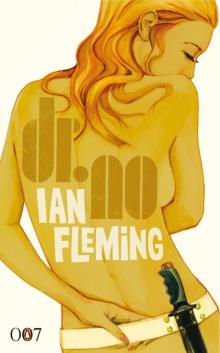 Doctor No
Doctor No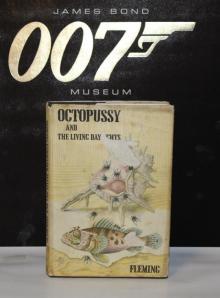 Octopussy & the Living Daylights
Octopussy & the Living Daylights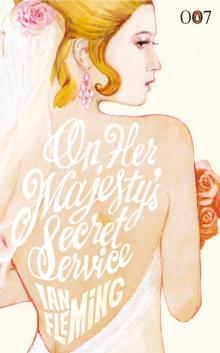 On Her Majestys Secret Service
On Her Majestys Secret Service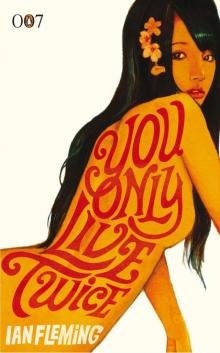 You Only Live Twice
You Only Live Twice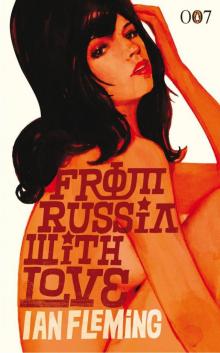 From Russia With Love
From Russia With Love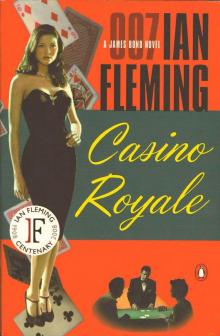 Casino Royale
Casino Royale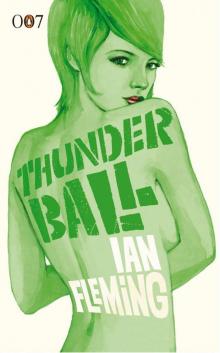 Thunderball
Thunderball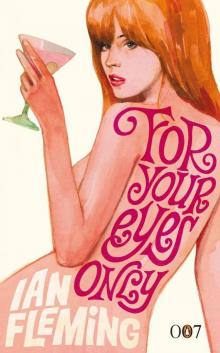 For Your Eyes Only
For Your Eyes Only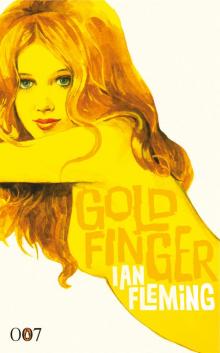 Goldfinger
Goldfinger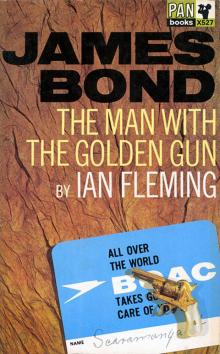 The Man With the Golden Gun
The Man With the Golden Gun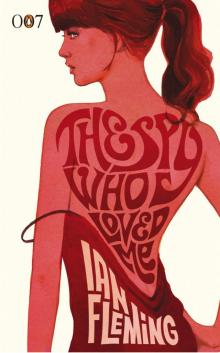 The Spy Who Loved Me
The Spy Who Loved Me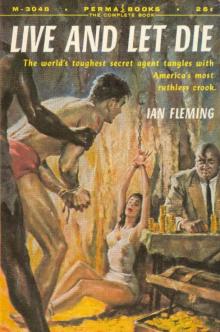 Live and Let Die
Live and Let Die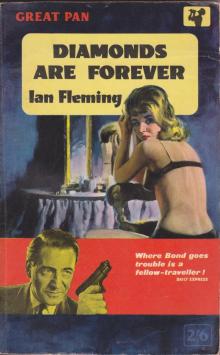 Diamonds Are Forever
Diamonds Are Forever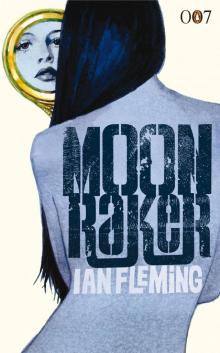 Moonraker
Moonraker The James Bond MEGAPACK®
The James Bond MEGAPACK®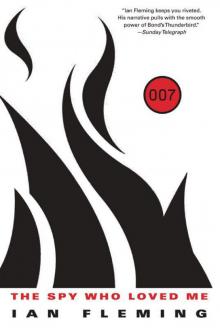 Bond 10 - The Spy Who Loved Me
Bond 10 - The Spy Who Loved Me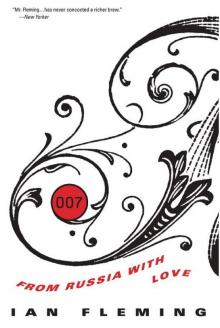 From Russia with Love (James Bond - Extended Series Book 5)
From Russia with Love (James Bond - Extended Series Book 5)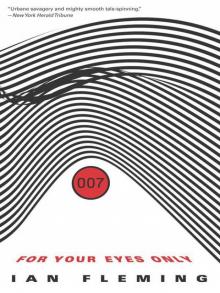 Bond 08 - For Your Eyes Only
Bond 08 - For Your Eyes Only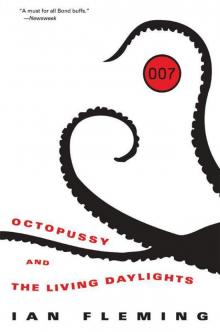 Bond 14 - Octopussy and the Living Daylights
Bond 14 - Octopussy and the Living Daylights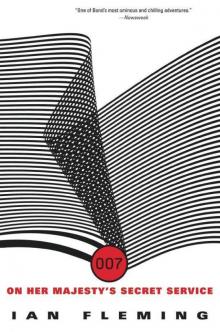 Bond 11 - On Her Majesty's Secret Service
Bond 11 - On Her Majesty's Secret Service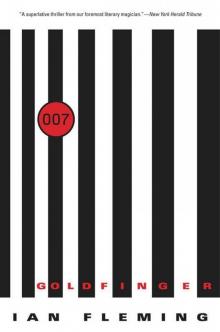 Bond 07 - Goldfinger
Bond 07 - Goldfinger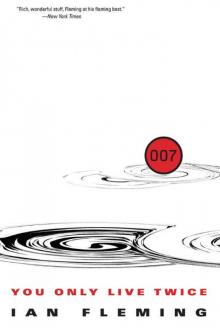 Bond 12 - You Only Live Twice
Bond 12 - You Only Live Twice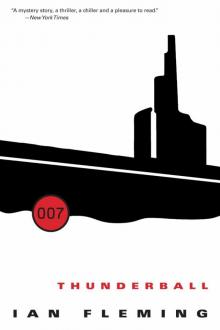 Bond 09 - Thunderball
Bond 09 - Thunderball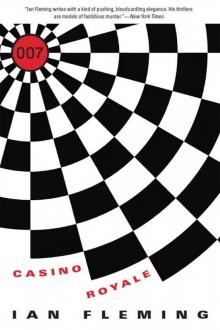 Bond 01 - Casino Royale
Bond 01 - Casino Royale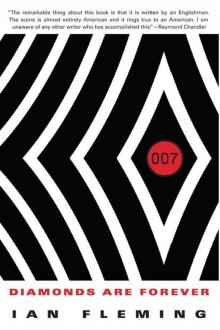 Diamonds are Forever (James Bond - Extended Series Book 4)
Diamonds are Forever (James Bond - Extended Series Book 4)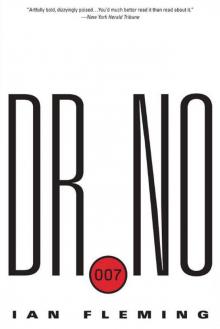 Bond 06 - Dr. No
Bond 06 - Dr. No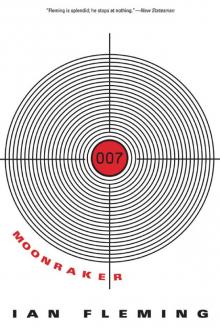 Moonraker (James Bond - Extended Series Book 3)
Moonraker (James Bond - Extended Series Book 3)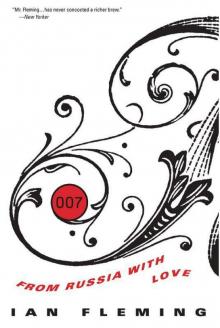 Bond 05 - From Russia With Love
Bond 05 - From Russia With Love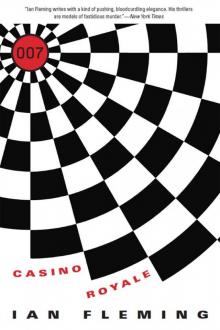 Casino Royale (James Bond - Extended Series Book 1)
Casino Royale (James Bond - Extended Series Book 1)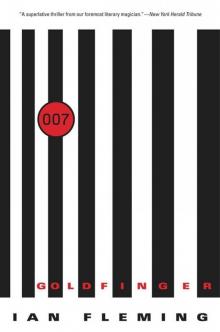 Goldfinger (James Bond - Extended Series Book 7)
Goldfinger (James Bond - Extended Series Book 7)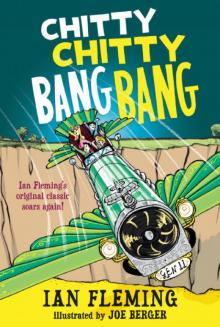 Chitty Chitty Bang Bang: The Magical Car
Chitty Chitty Bang Bang: The Magical Car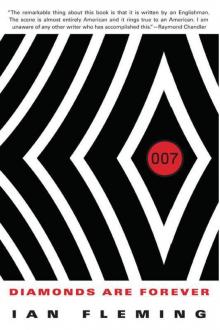 Bond 04 - Diamonds Are Forever
Bond 04 - Diamonds Are Forever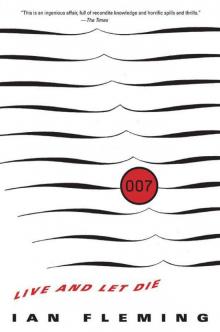 Bond 02 - Live and Let Die
Bond 02 - Live and Let Die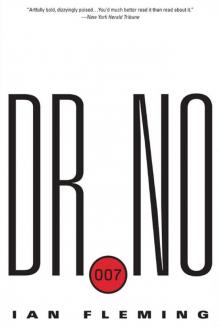 Dr. No (James Bond - Extended Series Book 6)
Dr. No (James Bond - Extended Series Book 6) The Hildebrandt rarity
The Hildebrandt rarity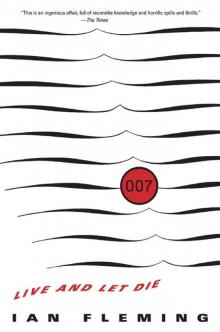 Live and Let Die (James Bond - Extended Series Book 2)
Live and Let Die (James Bond - Extended Series Book 2)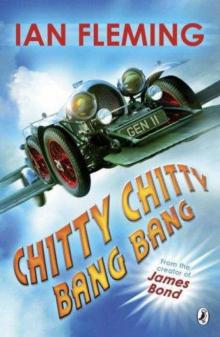 Chitty Chitty Bang Bang
Chitty Chitty Bang Bang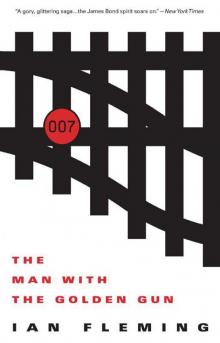 Bond 13 - The Man With the Golden Gun
Bond 13 - The Man With the Golden Gun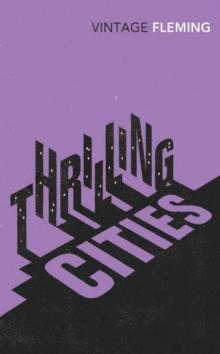 Thrilling Cities
Thrilling Cities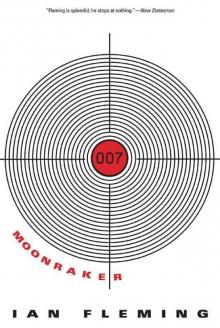 Bond 03 - Moonraker
Bond 03 - Moonraker